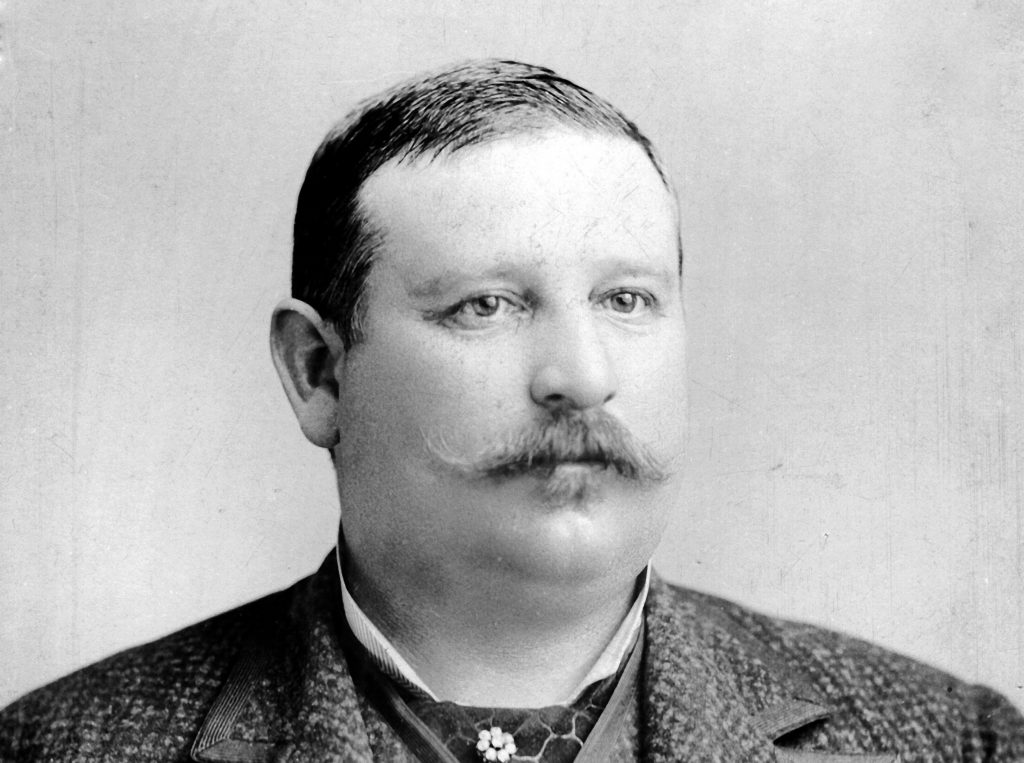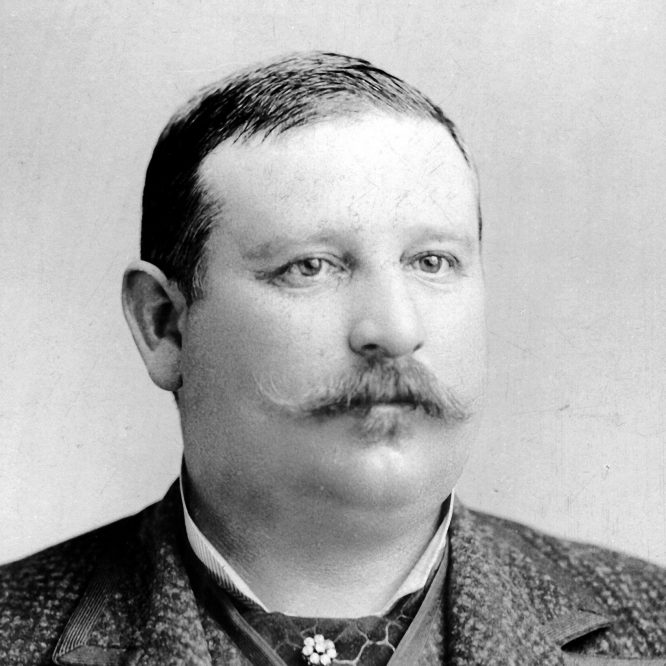
Volume 3, Issue 1
The history of Orleans County is filled with stories surrounding the smuggling of illegal liquor and contraband into the United States from Canada during the Prohibition era. Yet prior to the enactment of the 18th Amendment there was ongoing concern about travelers bringing untaxed goods into the United States, just as there is today. One local saloonkeeper had a similar run in with customs agents at the Canadian border in the late 1870s.
Frank Loveland was respected businessman, working as a clerk in the Albion House located on Clinton Street in Albion. He served with Company D of the 151st New York Infantry during the Civil War and was respected in that right throughout the community as well. Loveland was considered to be a bit of a prankster and enjoyed a good laugh, sometimes at his own expense; it is no surprise that he would have a laugh at the expense of a couple customs agents.
Loveland was returning from a trip to Canada in the spring of 1878 when he was stopped at the border by customs agents. As was the norm, Loveland and his baggage were inspected for contraband items and upon finding nothing out of the ordinary he was allowed to pass through. It was around noon so Frank stopped into a nearby restaurant for lunch. As he wrestled with the $.75 meal two men approached and asked him to step outside.
“Well, just wait till I pay for my dinner,” Loveland answered. “Oh, that’s alright,” responded one of the agents, “I’ll settle the bill.” The two men escorted Frank to a beautifully furnished room and before he could realize what was going on, one agent locked the door and “invited him to strip.” Thoroughly confused by the invitation, Loveland vehemently refused to comply and told them that if they planned to strip him that they had better “sail in.”
Annoyed by the resistance, the two agents explained the situation and informed him that they suspected he was carrying a quantity of silk under his vest and shirt. Such a suspicion would not be unwarranted for Loveland was quite the portly gentleman, but he quickly realized the situation and with great gusto popped open his vest. He patted himself contentedly and said, “Now, fellows, that’s all I’ve got.” The customs agents had fooled themselves and in doing so, provided Loveland with a free lunch.
Loveland seemed to have a knack for being in the wrong place at the wrong time. That same year while preparing to leave the Albion House, he stumbled upon Mrs. Mary McAdams and John Gage, a local police officer, engaging in an altercation about McAdams’ son. Gage had arrived to place the McAdams boy under arrest when Mrs. McAdams began to pummel him about the head with a parasol. With pressing business to attend to, Loveland thought it best to just avoid the situation and continue on with his personal matters.
Frank Loveland served as a Deputy Sheriff under Sheriff Spaulding and worked as a clerk in the Orleans House later in his career. He died on February 20, 1892 of paralysis at the age of 48.

